Constructivist News
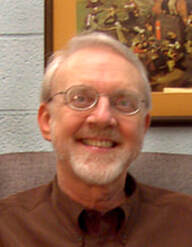 Dr. Franz Epting, University of Florida professor emeritus Dr. Franz Epting, University of Florida professor emeritus Franz Epting has been chosen to receive the Presidential Medal of Freedom for his seminal contributions to the profession of psychology, according to a White House press release. “We are proud to award this high honor to Dr. Epting,” White House press secretary Jen Psaki announced prior to President Joe Biden’s recent press conference. “Dr. Epting’s seminal work on personal construct theory makes him the ideal recipient for this award.” “And it doesn’t hurt that he’s even older than I am,” quipped President Biden, with a chuckle, before adding “C’mon man! Medals are fun!” Epting seemed unaware of the award when reached by phone at his home in Gainesville, Florida. “Oh my!” he exclaimed. “But I haven't even finished my biography of George Kelly yet!" Following a brief pause, he asked "Does the invitation include travel expenses? I’m retired and on a fixed income, you know.” He then accidentally hung up the phone. When reached again, he quickly handed the phone receiver to his spouse, Mark Paris. “Franz tells me he would be honored to attend the ceremony,” Mark reported, “as long as I handle purchasing our airfare to DC and personally chaperone the trip. It should work out pretty well. He gets the highest civilian honor a citizen can receive from the President of the United States. I get frequent flyer miles.” Word of Epting’s award spread quickly throughout the personal construct community. “It’s wonderful, even if these silly American awards make no sense to me,” remarked longtime personal construct psychologist Jörn Scheer from his home in Germany. “They give him a blue ribbon with a cheap looking medal attached. So what? Besides, the Americans haven’t hosted a personal construct psychology conference since 2014. Franz really ought to do something about that.” Psychologists David Winter and Harry Procter, reached by email in the UK, congratulated Franz and then promptly invited him to an online Zoom lecture about their new book on personal and relational construct therapy. “Do you have to be an American to get this award?” asked Procter. “If not, perhaps David and I might be in the running next year?” “I’m retired. Leave me alone!” shouted Larry Leitner when contacted at his home in Iowa and asked to comment on his friend being given the highest honor a US president can bestow. “Why is the press hounding me now, instead of when I was at the height of my career and it actually mattered? Had the media paid more attention years ago when I was starting up my TV talk show, it might not have been canceled after just two weeks on the air. I haven’t had a single ROLE relationship with a reporter since!” Leitner paused, then added “Oh, and congratulations Franz. I owe you a gourmet meal at the four star Nobu Los Angeles. Fixed income be damned!” Social media lit up with enthusiasm about the award, most of it under the hashtag #FreedomAwardFREPTING. But Epting was not interested. “I prefer sociality to social media,” he joked. President Biden will present the award at a yet-to-be-announced ceremony later this year. Jay Efran, who studied under George Kelly and Julian Rotter at The Ohio State University and went on to develop context-centered psychotherapy, has been honored with a marble bust at the National Museum of Psychology in Akron, Ohio.
“Over a 50+ year career, Dr. Efran has been a thorn in the side of professional psychology,” said the museum’s executive director, David R. Baker, in a statement released to the press. “We wanted to publicly honor him for utilizing radical constructivism and its seminal notion of structure determinism to so brilliantly perturb the status quo–albeit under the demonstrably false assumption that doing so might force the discipline of psychology to reorganize itself in more generative configurations. Ha! Put that in your structure and determine it!” When contacted at his home in Philadelphia and told of the honor, Jay was flattered but not especially enthusiastic. “I had heard they were planning to do this and I wasn’t particularly excited about it. Awards aren’t personal, you know. They’re really more a reflection on those giving them than those receiving them.” Asked why, given his lack of enthusiasm about the award, he didn’t turn it down, Efran cocked his head slightly and replied briskly, “I decided to go along with it because–as every context-centered psychotherapist knows–what we resist persists!” Colleagues in the field had a variety of reactions when told of Efran’s bust being installed in the museum. “What an extraordinary accomplishment,” gushed Efran co-author Mitchell Greene. When shown a photo of the bust and asked to comment, Greene’s expression shifted dramatically and there was a lengthy pause before he replied “Well um, how interesting. Not exactly up to Roman standards, but it’s the thought that counts.” Not everyone was as circumspect about the quality of the bust. “Ha! I think it’s wonderful!” cheered renowned personal construct psychologist Franz Epting, who went to graduate school with Efran back in the 1960s. “I never realized before how much Jay looks like Ulysses S. Grant! The resemblance is uncanny!” Though most people in the constructivist community responded positively, a few were critical of the bust being installed in the museum. “Talk about reification of constructs!” huffed Bill Warren when reached at his retirement villa in Australia. “George Kelly said that people are forever in process. However, statues are inevitably static creations, therefore I’m against them. Now get out of my way because I’m off to the pub to watch me some rugby.” Prominent critic of constructivism, Barbara Held, used the opportunity to score points. “How ironic that an antirealist like Efran is being honored with something about as epistemologically real as it gets: a garish bust of his noggin!” snapped Held when asked to comment during a visit to the museum where she was among the first to view the bust. “Does Efran even accept the statue as ontologically real? If not, he and his fellow antirealists need to get back to reality!” After commenting, Held took out a black Sharpie and attempted to draw a phrenology map on the side of the bust, but was prevented from doing so by museum security. Asked to place having a bust of his head displayed in a museum into context, Efran responded “I usually love being asked about context, but I can honestly say that when it comes to this God-forsaken artistic monstrosity that is supposed to represent my head, suddenly discussing context annoys the hell out of me.” Trying to salvage his answer, Efran added “Having a hideous bust of your head put in a museum doesn’t matter, but it also doesn’t matter that it doesn’t matter. So there’s that.” The official unveiling of “Efran in Repose” at the National Museum of Psychology is scheduled for October 10. 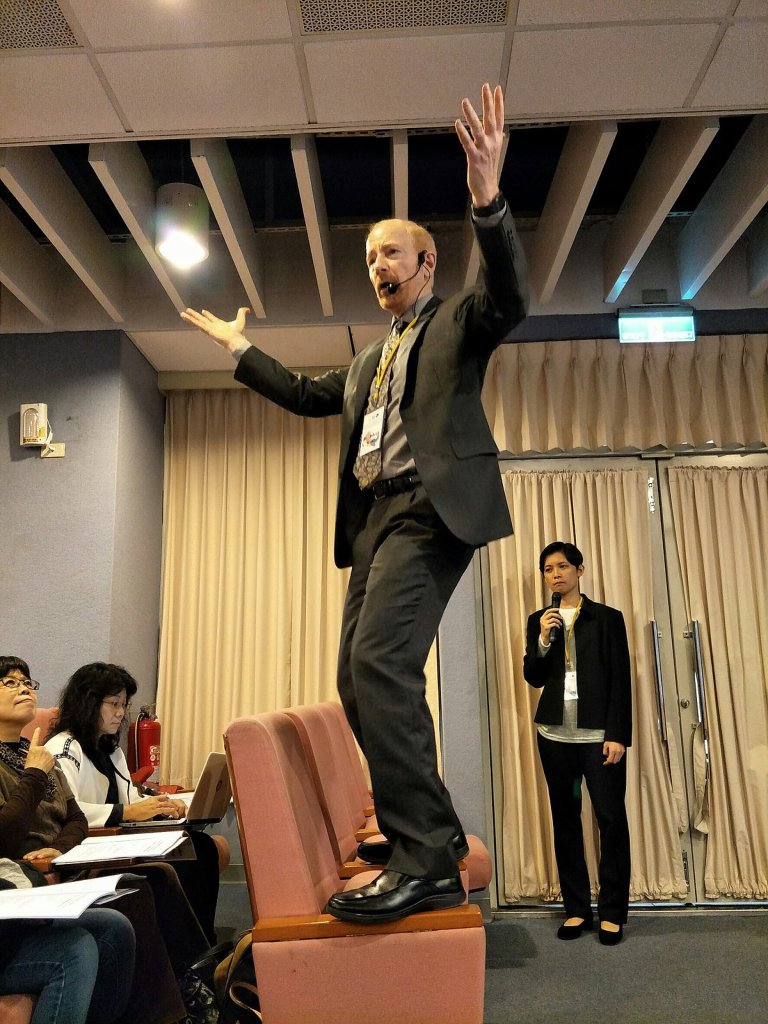 Constructivist psychologist and world-renowned grief and loss scholar Robert Neimeyerhas signed a 7-year deal with Netflix, according to unnamed sources. Under the deal, which will pay Neimeyer an estimated $12.5 million annually, Netflix and Neimeyer will work together to produce a streaming documentary series, tentatively titled “Love and Loss with Bob Neimeyer.” “I’m thrilled,” said Neimeyer at the press conference in Burbank where the deal was announced. “I’ve been traversing the globe presenting on grief and loss for years now, so to land a Netflix deal and be able to share my global sojourns on television is beyond exciting.” Reaction to the Neimeyer signing from within the constructivist community was swift and intense. Some were encouraging, but most expressed some combination of skepticism and envy. “What a lovely and well-deserved accomplishment,” said Franz Epting, senior personal construct psychologist and former mentor to Neimeyer during his undergraduate days at the University of Florida. “I will definitely tune in. Um, what channel is Netflix on in Gainesville?” But not everyone was as enthusiastic in response to the news. “Sell out,” muttered a seemingly jealous Larry Leitner, whose daytime talk show, “Hello Larry,” was such a bust for ABC television several years ago that he quit psychology permanently and retired to a farm in Iowa. “Why get a gig on TV when you can run a family farm instead?” There was a similarly chilly reaction from Bob’s younger brother, Greg, also a psychologist. “How come he gets a TV show instead of me?” exclaimed Greg, associate executive director for continuing educationand professional development at the American Psychological Association, as he made his way to the White House to lobby President Trump for increased federal funding of mental health care. “As a political big wig in my own right, my entourage is still going to be bigger than Bob’s. Plus, I have more Twitter followers than he does.” When asked about the mixed reaction to his television deal from the constructivist community, Bob was philosophical. “It’s hard when people move on to bigger and better things. First there was my new Institutein Portland. Now a show on Netflix. I’m the David Letterman of Psychology. And that’s not easy for everyone. But my show, which will teach people how to make meaning out of loss, should help those struggling with my recent Hollywood ascent. Oh, and tell Greg his entourage got nothin’ on mine.” ”Love and Loss with Bob Neimeyer” is scheduled to start streaming on Netflix in July. Constructivist stock market investors everywhere were downright giddy when it was announced today that the constructivist-oriented Coherence Psychology Institute is going public. According to multiple press reports, the price per share for the Institute’s upcoming initial public offering (IPO)will be between $12-15. For those not savvy in the workings of the stock market, an IPO marks the first time a company sells stock to the public. “We are pleased to announce our IPO,” announced Institute director, master psychotherapist, and part-time day trader Dr. Bruce Eckerat a hastily arranged press conference, accompanied by fellow coherence therapist and institute co-director Dr. Sara Bridges. “This is a momentous day for constructivist therapists and Wall Street investors alike.” “This IPO reflects the ever-growing success and popularity of Coherence Therapy™ and the Emotional Coherence Framework™,” added Dr. Bridges. But why an IPO? “Ah, that’s an easy question,” replied Dr. Bridges. “What made us decide to move forward with this IPO is that we have now, beyond a shadow of a doubt, established that Coherence Therapy™ uses the brain’s built-in process for modifying established neural circuits—what we call the Therapeutic Reconsolidation Process™. Who wouldn’t want to invest in that?” “Besides, we also really want to get ourselves Teslas,” added Dr. Ecker, anticipating the economic windfall an IPO can bring. “They’re really cool cars and good for the environment too.” Reaction from the constructivist community was swift and, as always, divided. “Capitalists exploiting constructivism for personal gain!” harrumphed grouchy retired constructivist therapist Dr. Larry Leitner from his retirement villa in rural Iowa. “For goodness sake, I developed experiential personal construct therapy and it never made me a dime! Literally. Can you spare a dime?” “How do I get me some shares?” asked wayward personal construct psychologist Dr. Greg Neimeyer, now working as the American Psychological Association’s associate executive director for continuing education. “This APA gig ain’t paying the bills. Living in DC is so much more expensive than Gainesville!” The real question is whether, outside of the 12 documented constructivist therapists who make more than $45,000 per year, there is much of a market for a Coherence Institute IPO. “Hmm, when did you first notice yourself worrying about whether you could afford shares?” asked Ecker, looking somber and exuding empathy. “Perhaps if I write down the cost per share on this index card, you could consult it thrice daily so that the emotional truth that you can afford it might break through.” "Um, yeah, what he said," added Bridges, nodding her head in agreement. As of press time, the IPO is scheduled for April 15. Mark your calendars. 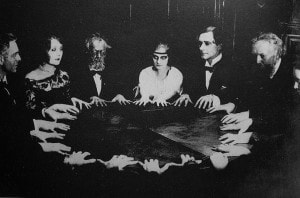 A séance, like the one to be conducted at EPCA 2016. A séance, like the one to be conducted at EPCA 2016. A plenary session séance intended to communicate with the late George Kelly, founder of personal construct psychology, will be a highlight of the European Personal Construct Association's 2016 conference, its organizers have announced. "What better way to mark the occasion than to contact Kelly himself in an effort to update him on the latest in personal construct theory development, rep grid methodology, and practical applications in both clinical and organizational settings?" remarked Professor David Winter, who looks forward to communing with Kelly directly for the first time in his long and highly accomplished career as a personal construct psychologist. "I think Dr. Kelly will be quite pleased with all we have been able to do with his theory since his premature passing in 1966." "What a splendid idea! I am absolutely gobsmacked!" exclaimed Dr. Harry Procter, who not only will attend the séance but has been charged with serving as its convener and chief medium. "What a remarkable opportunity. I have every intention of getting right down to business and asking Kelly flat out: What do you think of my innovative work on relational grids?" The conference, to be held in Galzignano Terme in the province of Padua in Italy, will occur from July 7-10. In the run up to the conference, its organizers are busily researching the nuances of effective séance procedure. "We don't want to be caught off guard," said one unnamed conference organizer. "Analyzing a rep grid is one thing; conducting a séance is quite another." Admittedly, the idea of holding a séance is not universally popular within the personal construct psychology community. To many people's great surprise, even though the conference will be held in Padua, prominent Italian personal construct psychologists sharply disagree about the wisdom of summoning Kelly from the Great Beyond. "I am not sure about the appropriateness of such an activity," sniffed Professor Gabriele Chiari. "Kelly never spoke of such things anywhere in his published canon, thus I am not certain that we should be soiling his work by associating it with the unscientific channeling of ghostly spirits. I'm all for hermeneutic approaches to constructivism, but this is ridiculous." "I disagree firmly," countered Professor Massimo Giliberto. "As long as we don't resort to bringing out Beverly Walker's ouija board, I believe we can maintain our professional dignity and learn Kelly's thoughts about the broader constructivist movement that has arisen since his untimely death. Despite all our hand wringing about it over the years, Kelly might really dig things we never could have predicted--you know, things like Twitter and social constructionism." Personal feelings about including a séance at the conference notwithstanding, the event surely promises to increase attendance. Pending completion of relevant paperwork, conference goers will be eligible for 3 continuing education credits for participating in the séance; 4 if Dr. Kelly ultimately communicates with the group from the hereafter. 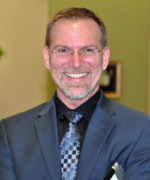 CPN Presidential Candidate Kenneth Sewell has announced plans to run for congress. Seeking a seat as a Democrat in Louisiana's Congressional District 2, Sewell simply wants to make a difference. Sewell is currently Vice President of Research and Economic Development at the University of New Orleans, but sees the transition to politics as a natural next step in the progression of his career. "Well, with my shift into a more administrative role at my current university, I've gotten knee-deep in university politics the last few years. And what's nastier than that? I figure compared to campus politics, congressional politics will be a cinch," said Sewell as he sipped a margarita while attending a fundraiser for his new political action committee, "Sew-PAC." What will his agenda be? "Roads," he said, solemnly. "I'm a big fan of roads. We need to build more of them and fast. I want to be the Robert Moses of Louisiana." Is he prepared for the rough and tumble of politics? The negative campaigning? "Indeed I am," he reported in that charming southern drawl that disarms listeners. "The fella running against me is a Tea Party hack unworthy of higher office. Besides, this is Louisiana, so there's a 50-50 chance he'll be caught taking bribes sometime between now and election day." Are the people of New Orleans really ready to elect a constructivist psychologist as their next Congressman? "Why not?" asked Sewell, flashing a quick grin. "The opportunities for connections between Louisiana politics and constructivist psychology are untapped, really. My plan is to offer Louisianans new constructive alternatives...and, of course, roads. Did I mention I'm a big fan of roads?" Sewell's CPN colleagues were not entirely surprised to hear of his political aspirations, but reactions were mixed. "I'd vote for him in a heartbeat!" exclaimed Sara Bridges, past CPN President and Associate Professor of Psychology at The University of Memphis. "He's dreamy!" "Sewell's a Democrat?" snorted current CPN President Spencer McWilliams. "Who'd have thunk it? That guy's one helluva a political chameleon! But he is kinda dreamy." And what about his CPN presidential run? "Oh, that won't be a problem," stated Sewell with quiet confidence. "I'm an excellent multitasker. I'm thinking I can easily serve CPN and the 2nd Congressional District simultaneously. Might even be able to steer some PAC money towards the next international personal construct psychology congress if everything works out as planned." Does he think he'll win? "If I was a gambling man, I'd bet on it," he said with a wink. Election Day is November 4. 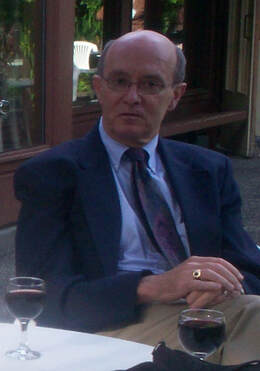 Larry M. Leitner Larry M. Leitner Dr. Larry Leitner has accepted an offer to host a syndicated television talk show. Tentatively titled "Hello, Larry," the hour-long show will be an advice show tackling a different topic in each episode in which Leitner, professor of psychology at Miami University and developer of Experiential Personal Construct Therapy, will offer advice for his guests' troubles. The show will air directly after "Dr. Phil" in most major media markets. "If you wanted to know about the show, you should have just called me in the first place!" Leitner chided when contacted at home after not responding to repeated email inquiries. "I'm a member of the paper and pencil club! I can't be bothered with newfangled technologies like email!" "The show is going to be awesome," he continued. "I plan to bring an experiential personal construct psychology perspective to the proceedings. If the theme of the show that day is 'Women Who Love Too Much,' I'll be able to explore the ways in which my guests have failed to adequately disperse dependencies or properly develop ROLE relationships." When asked to expound a bit further on role relationships, Leitner grimaced and in a low, quiet voice stated, "Technically, we call them ROLE relationships, not role relationships." Reaction within the constructivist community to Leitner's new career trajectory was decidedly mixed. "I think it's a wonderful idea," said Dr. Jill Thomas, Assistant Professor of Psychiatry and Behavioral Sciences at the SUNY Upstate Medical Center and a former doctoral student of Leitner's. "Larry is perfect for TV. Warm and curmudgeonly at the same time. Just what today's audience needs. Besides, he even looks a little like Dr. Phil." Dr. Donald Domenici, another former Leitner student who is presently a counselor at Dickinson College and a CPN Steering Committee member, strongly disagreed. "The whole thing strikes me as a bit unseemly and self-promotional. He should not be hawking experiential PCP on television. That's what obscure journal articles with a circulation of 12 are for." Leitner was philosophical about making such a significant career change at this point in his life. "Geez, I was planning to retire soon anyway, so what's the difference?" he said, sounding simultaneously reflective and annoyed. "This just lets me enjoy using my clinical skills in a new way. Heck, I might even throw a cooking segment or two into the show. I mean, if Rachel Ray can get away with cooking on TV, then certainly I can!" "Hello, Larry" is scheduled to premiere in September. Check your local listings. 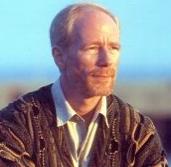 Robert A. Neimeyer Robert A. Neimeyer Internationally-renowned constructivist researcher and psychotherapist Robert Neimeyer is giving up constructivism to become a dentist. Neimeyer was contacted on his connecting flight from Benghazi to Luxembourg, where he was scheduled to give the last of 587 invited lectures he has given since 2010 on applying constructivist therapy techniques to helping those facing issues of grief and loss. He was asked about the abrupt and unexpected career shift. “I’ve just had enough,” Neimeyer sighed. “I’m tired of helping people reconstrue their identities in the aftermath of devastating personal losses. It’s easier just to clean people’s teeth.” When asked if he was taking up a particular dental speciality, Neimeyer paused. “Orthodontia sounds interesting,” he said. “Maybe I’ll get back what I spent to have my kids’ teeth straightened!” Will he miss constructivism? “Not really,” he noted with a twinkle in his eye. “I hate to admit it, but all that theory and theoretical jargon wore me down after a while. I grew tired of all the epistobabble. You may not believe this, but I don’t like big words.” Asked for a final thought before he darted off to catch his flight, Neimeyer smiled. “Very few people recall this about him, but George Kelly always reminded his friends and students to floss twice a day. Let me add that people should also make sure to have their teeth cleaned biannually. Call my secretary to make an appointment.” |
CPNLatest News. Archives
January 2024
Categories
All
|

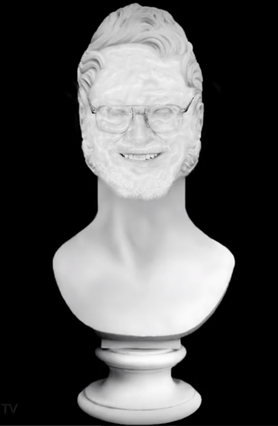
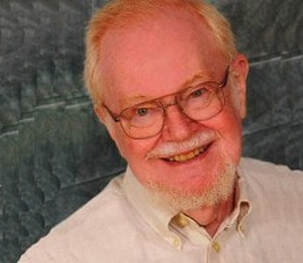
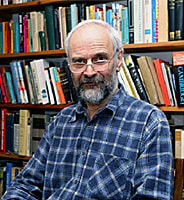
 RSS Feed
RSS Feed